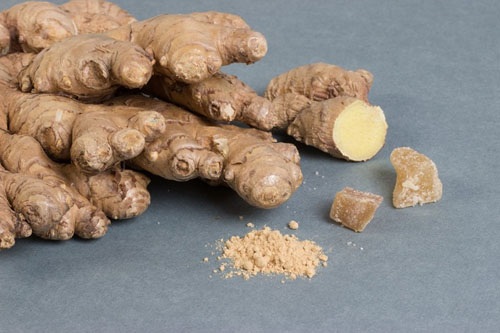São Paulo – Known as a health ally, ginger has been a synonymous of profitability for Brazilian small farmers. With low production costs, the cultivation lasts from eight to 10 months from planting to harvesting, which has an advantage: it does not need to occur immediately. That is because ginger is a tuberous root that can be kept in the ground for some time even after it achieves its point of development. This is one advantage of this crop, which allows for the farmer to wait for a good economic moment to harvest it and then sell it.
To boost the amount paid for the foodstuff, Espírito Santo – Brazil’s top ginger-producing state – has encouraged the organic farming. The certification has also been demanded by international buyers. “We’ve been promoting organic production since 2018. It has seen a large demand overseas. We started encouraging farmers, who supported the cause, and increased the organic exports,” Capixaba Institute for Research, Technical Assistance and Rural Extension (Incaper) rural trainer Galderes Magalhães.
The product is grown by families in estates that range from three to 15 hectares, and the organic product can reach a 30-50% higher value. “The ginger crop does not require high investments in chemical inputs. This year we had a high-productivity experience using just organic fertilizers,” Magalhães continued.
The production area of the foodstuff has grown, and its sales are focused in the foreign market, which accounts for over 90% of the ginger produced in Espírito Santo. The latest figures collected by Incaper show a growth in the Espírito Santo’s production, from 18,680 tonnes in 356 hectares in 2018 to 23,060 tonnes in 439 hectares in 2019.
Some of the main markets for the Brazilian product are Europe, United States and Japan, but some Arab countries such as the United Arab Emirates, Qatar and Saudi Arabia have been among the buyers. “Our ginger is well regarded across the world. Our variety is high in fibers. This allows it to remain in good shape after being put in a container and travelling by sea to its destination,” Magalhães explains.
Exports could double next year. “We started exporting in February but with smaller volumes, as the pandemic was already strong overseas. Initially the exporting process got more expensive because it had to be sent by air, but transportation costs have decreased since then. We’ve managed to keep the trade,” he explained.
As for the state of São Paulo, where the municipality of Tapiraí accounts for 51% of the state’s production, the farmers sell it in the domestic market and have seen an increase in demand. That is the case of the Rural Community Association for Human Promotion and Nature Protection, which brings together farmers of the city. According to the association’s former chairwoman and current tax advisor Ivanete Borba, the demand for the product has increased since last March.
Its 21 members sell the product in CEAGESP in Sorocaba and caters for other companies as well. Each farmer allots an average of 1,5 hectare of their estate to grow ginger, always together with other crops.
The group of small farmers has become more professional, and the 19-year-old association now prepares for a new phase. “We’ve learned to manage the association with a project that supported us. Now we plan to handle exports. And the quality must be high, with fiber-rich ginger to resist the shipment,” she explained.
While the cool climate and the mountain terrain of the municipality are good for the crops, the family farmers’ experience shows that quality is the way. “We can’t grow a lot around here because a tractor can’t get in many areas, for example. So, we need to invest in the quality of the ginger,” she explained.
The farmers in São Paulo are starting to transition into organic farming. “There are lots of forest and microorganisms around here that help on this. The climate also contributes for the cultivation of our ginger, which is richer in fiber and thus can be exported. This year we have seen the quality we planned for,” she concludes. The Rural Community Association for Human Promotion and Nature Protection seeks to sell the product directly to companies and consumers and can be reached by dialing +55 (15) 99860-8322.
Translated by Guilherme Miranda




